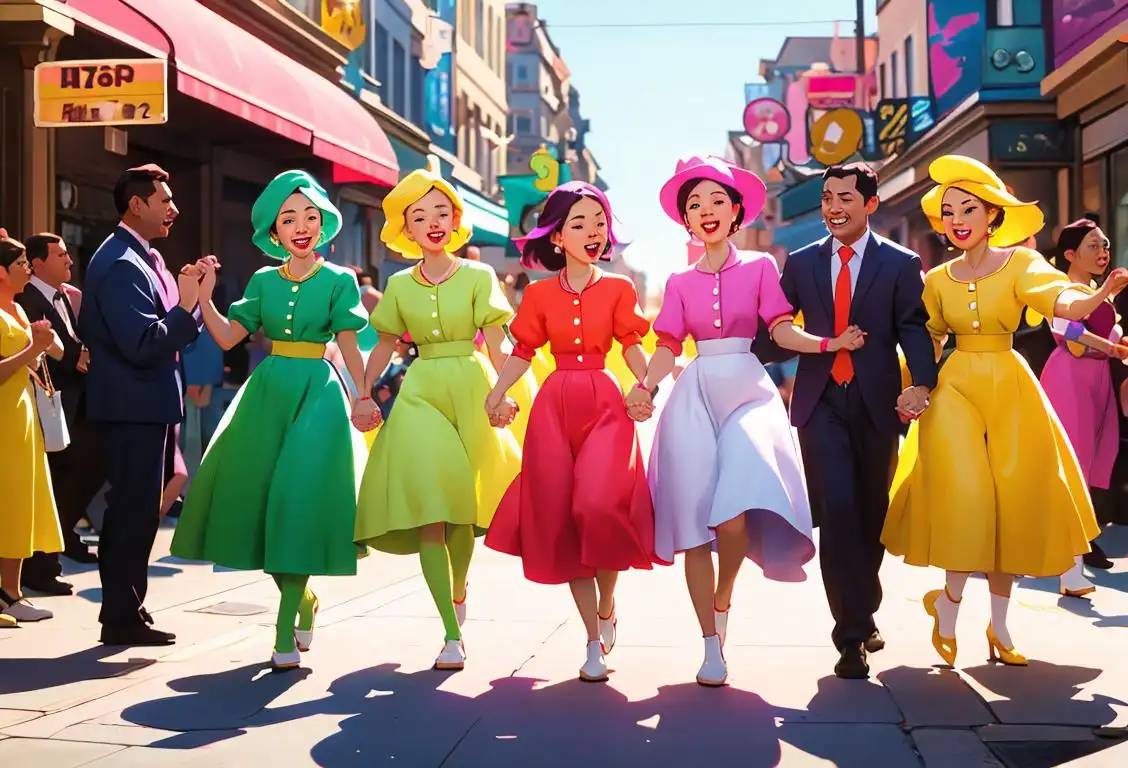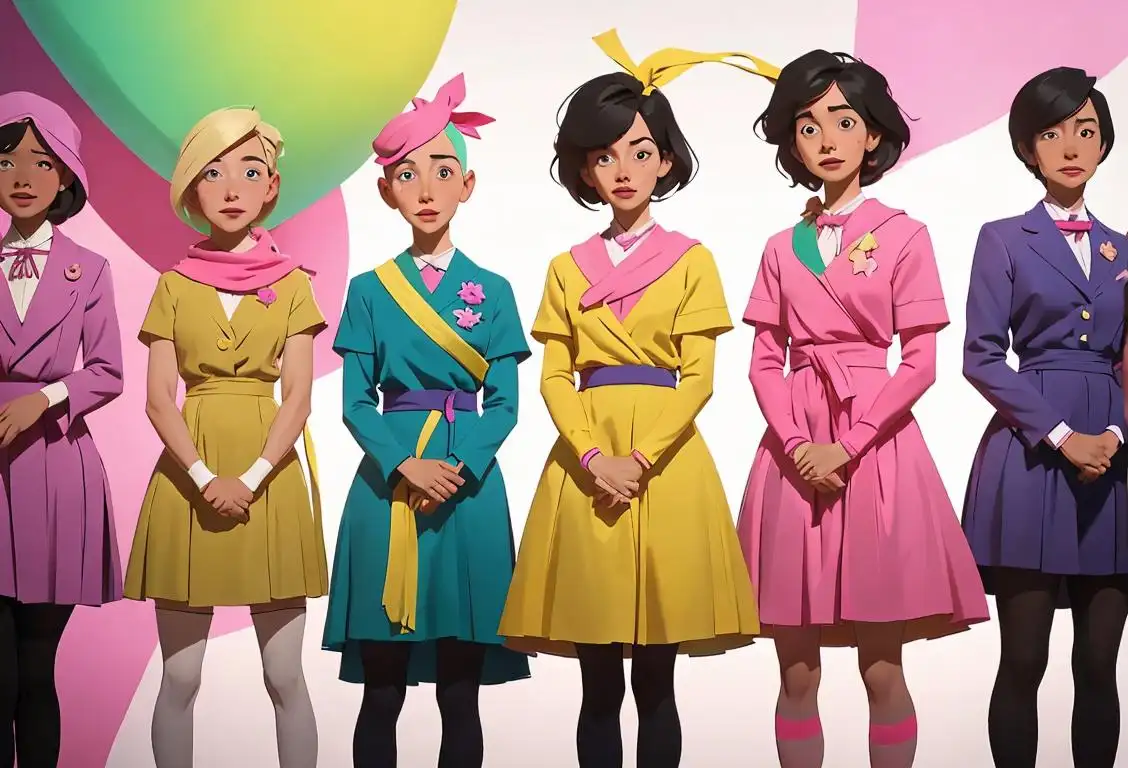National Reopening Day

Welcome to the grand reopening of National Reopening Day! It's time to dust off your dancing shoes and put on your party hat because the world is ready to come back to life. After months of hibernating like a bear in winter, we are emerging from our cocoons and spreading our wings once again. National Reopening Day is a day to celebrate the return to normalcy, to reconnect with loved ones, and to remember the good times we've had and the ones that are yet to come. So, let's raise a glass and toast to the joy of reopening!
When is Reopening Day?
It's national reopening day on the 16th June.
The Origins of National Reopening Day
Every story has a beginning, and the tale of National Reopening Day is no exception. This special day came into existence in response to the global pandemic that brought the world to a screeching halt. As countries implemented strict lockdown measures to curb the spread of the virus, businesses closed their doors, gatherings were banned, and an eerie silence settled over the streets.
But as the world battled the challenges, a flicker of hope emerged. The tireless efforts of scientists, healthcare workers, and ordinary people around the globe paved the way for a brighter future. Slowly but surely, countries began to ease restrictions, allowing people to venture out once again. And with that, National Reopening Day was born - a day to commemorate the gradual return to normal life.
How to Celebrate National Reopening Day
Now that you know the history, it's time to get down to business. National Reopening Day is a time to celebrate, so here are a few ideas to make the most of this special day:
- Organize a long overdue reunion with friends or loved ones. Finally, you can give them that big bear hug you've been saving up!
- Support your favorite local businesses by treating yourself to a delicious meal or indulging in some retail therapy. They've missed you, too!
- Dust off your sports gear and get back in the game. Whether you're a seasoned athlete or a casual player, there's nothing like the thrill of competition.
- Take a moment to reflect on the past year and remember those who have been affected by the pandemic. Reach out to someone who might be feeling isolated or make a donation to a charity in their honor.
- And, of course, don't forget to have fun! Play a silly game, dance like nobody's watching, or enjoy a day of relaxation. You deserve it!
Did You Know?
Did you know that National Reopening Day is not only about physical places reopening but also about opening our hearts and minds? It's a reminder for us to embrace change, new opportunities, and the beauty of life unfolding before us. So, let this day be a symbol of resilience and optimism as we move forward together!
History behind the term 'Reopening'
1843
The First Reopening
The term 'reopening' originated in 1843 in the context of the theater. This year marked the first recorded use of the term to describe the act of reopening a theater that had been temporarily closed. The reopening of theaters was often eagerly anticipated by theater enthusiasts as it meant the return of live performances and entertainment.
1874
The birth of reopening
The term 'reopening' was first used in financial contexts in 1874. It refers to the act of reopening a business, particularly in relation to the stock market. When a company decides to resume trading its shares after being closed for a period, it is said to be reopening.
1918
Reopening after the flu pandemic
In 1918, the world was hit by the devastating Spanish flu pandemic. Many businesses, schools, and public places were closed to contain the spread of the virus. As the pandemic subsided, cities and countries started gradually reopening their economies, allowing businesses to resume operations.
1955
Economic Revival
In 1955, the term 'reopening' gained broader usage and significance in the context of business and commerce. This was a time when industries and businesses were recovering from the economic downturns caused by World War II and the Great Depression. 'Reopening' then began to be used to describe the act of reopening a business after a period of closure, such as renovations, financial difficulties, or market changes.
1965
Reopening Borders
The term 'reopening' took on a new meaning and global relevance in 1965, with the increasing focus on international relations and travel. This year witnessed the reopening of borders between countries previously closed off due to political conflicts or diplomatic tensions. 'Reopening' became synonymous with diplomatic breakthroughs, peace agreements, or significant shifts in international relations.
1965
Reopening diplomacy
The term 'reopening' took on a new meaning in diplomacy in 1965. It referred to the process of resuming diplomatic relations between two countries that had previously severed ties. Reopening diplomatic channels often involved negotiations and agreements to restore communication and cooperation.
1990
Reopening after the fall of the Berlin Wall
The fall of the Berlin Wall in 1989 marked a significant moment in history. In the following years, many countries in Eastern Europe underwent political and economic transformations. The term 'reopening' became associated with the reopening of borders, businesses, and cultural connections between East and West, symbolizing the reunification of divided nations.
2020
Pandemic Recovery
The year 2020 marked a significant step in the history of 'reopening' due to the unprecedented global impact of the COVID-19 pandemic. As the world faced widespread closures and restrictions, the term 'reopening' became universally recognized and used in various contexts. It referred to the phased reopening of businesses, schools, public spaces, and travel as societies aimed to recover from the effects of the pandemic and return to a semblance of normalcy.
2020
Reopening post-pandemic
In 2020, the world faced an unprecedented challenge with the outbreak of the COVID-19 pandemic. Lockdowns and restrictions were imposed globally to protect public health. As vaccines were developed and infection rates decreased, nations began planning for the reopening of their societies. 'Reopening' became a term synonymous with the careful easing of restrictions, allowing businesses, schools, and social activities to resume while mitigating the risks associated with the virus.
Did you know?
Did you know that National Reopening Day is not only about physical places reopening but also about opening our hearts and minds? It's a reminder for us to embrace change, new opportunities, and the beauty of life unfolding before us. So, let this day be a symbol of resilience and optimism as we move forward together!Tagged
awareness food fun loved ones rememberance sportsFirst identified
16th June 2020Most mentioned on
16th June 2020Total mentions
23Other days
Caregivers Day
Believe Day
Photography Day
Family Day
Action Day
One Day
Happiness Day
Trivia Day
Opposite Day
Cancer Awareness Day









